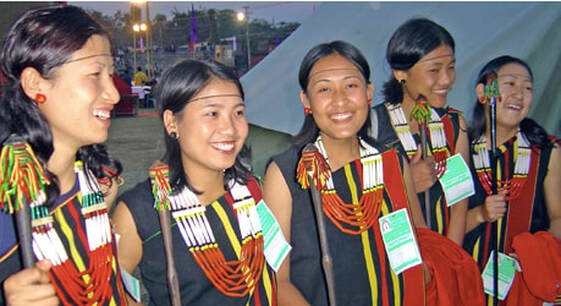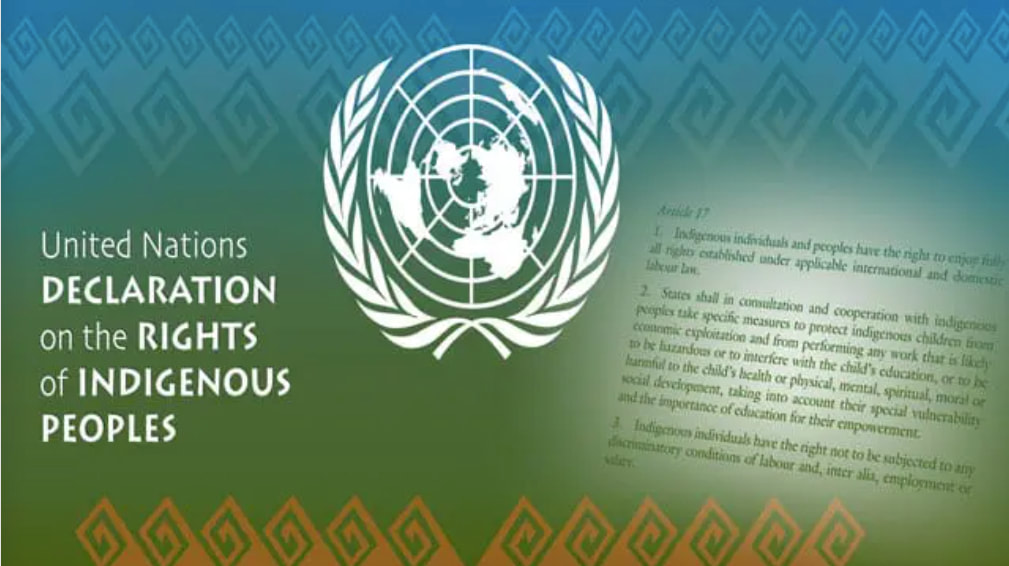United Nations Declaration on the Rights of Indigenous Peoples
|
We are pleased and privileged to be promoting this significant United Nations Declaration — in specific response to the Canadian Truth & Reconciliation 'Calls to Action.' (both available for downloads below). The image featured here on the left is attributed to and used with appreciation from the United Nations Human Rights Office of the High Commissioner >>> highlighting ‘Youth Involvement’ as key to achieving Indigenous Peoples Human Rights worldwide.
|
Today the UN Declaration on the Rights of Indigenous Peoples is the most comprehensive international instrument on the rights of indigenous peoples. It establishes a universal framework of minimum standards for the survival, dignity and well-being of the indigenous peoples of the world. It also elaborates on existing human rights standards and fundamental freedoms as they apply to the specific situation of indigenous peoples. It was adopted by the United Nations General Assembly on Thursday, 13 September 2007, by a majority of 144 states with four votes against (Australia, Canada, New Zealand and the United States) and eleven abstentions. Since this date, the four countries who voted against have reversed their position and now support this UN Declaration — downloadable — in full — below.
|
“This Declaration sets out a universal framework of minimum standards for survival, dignity, well-being and rights of the world’s indigenous peoples. It addresses individual and collective rights including culture, identity, education, health and employment.” |
This powerful image is used with appreciation & attributed to APTN National News >>>
|
To honour this United Nations Declaration and feature a variety of ways to promote this powerful worldwide commitment to the global public, we are committing to establishing many Indigenous language versions of the Nightingale Declaration for A Healthy World and with stories related to these commitments to Indigenous Peoples. The first of these versions is in Kiswahili — the Indigenous language of East Africa and now the official language of the African Union. Our first related story — about achieving United Nations Sustainable Development Goals in Uganda--is available here >>>
Watch this space for many more Nightingale Declaration Indigenous language versions to come.
Watch this space for many more Nightingale Declaration Indigenous language versions to come.
Here are two downloadable files:
UN Declaration on the Rights of Indigenous Peoples & the Canadian Truth & Reconciliation 'Calls to Action.'
UN Declaration on the Rights of Indigenous Peoples & the Canadian Truth & Reconciliation 'Calls to Action.'
|
| ||||

